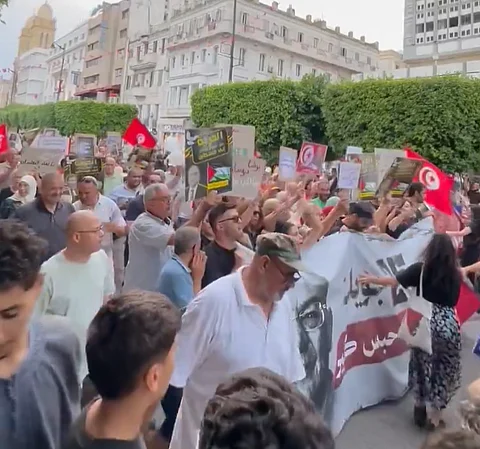

Hundreds of Tunisians marched in Tunis on July 25 to protest President Kais Saied’s rule, four years after his 2021 power grab critics call a coup.
On that date, Saied suspended parliament, dismissed the prime minister, and began ruling by decree under a state of emergency.
Protesters carried portraits of jailed opposition leaders and a cage symbolizing Tunisia’s stifled political life, once a beacon of the Arab Spring.
They chanted slogans like “The Republic is a large prison,” condemning what they describe as an authoritarian regime.
Prominent opposition figures, including Rached Ghannouchi of Ennahdha and Abir Moussi of the Free Constitutional Party, remain imprisoned.
Dozens of politicians, activists, lawyers, and journalists face charges like undermining state security, with some seeking asylum abroad.
In 2022, Saied dissolved the Supreme Judicial Council and sacked judges, moves critics say solidified his one-man rule.
Saib Souab, son of imprisoned lawyer Ahmed Souab, told Reuters, “Tunisia has turned into an open-air prison … Even those not behind bars live in a state of temporary freedom, constantly at risk of arrest for any reason.”
July 25, marking Tunisia’s 1957 republic declaration, now signifies Saied’s 2021 power consolidation, backed by the pro-Saied “July 25 Movement.”
Samir Dilou, a former minister, said, “July 25 used to mark the Republic’s founding. Now, it marks its dismantling. Absolute power is absolute corruption.”
Amid economic hardship, protesters demanded the release of political prisoners and a return to democratic ideals.
Amnesty International’s June report highlighted intensified crackdowns on dissent, with vague laws targeting opposition voices, underscoring Tunisia’s slide into repression.